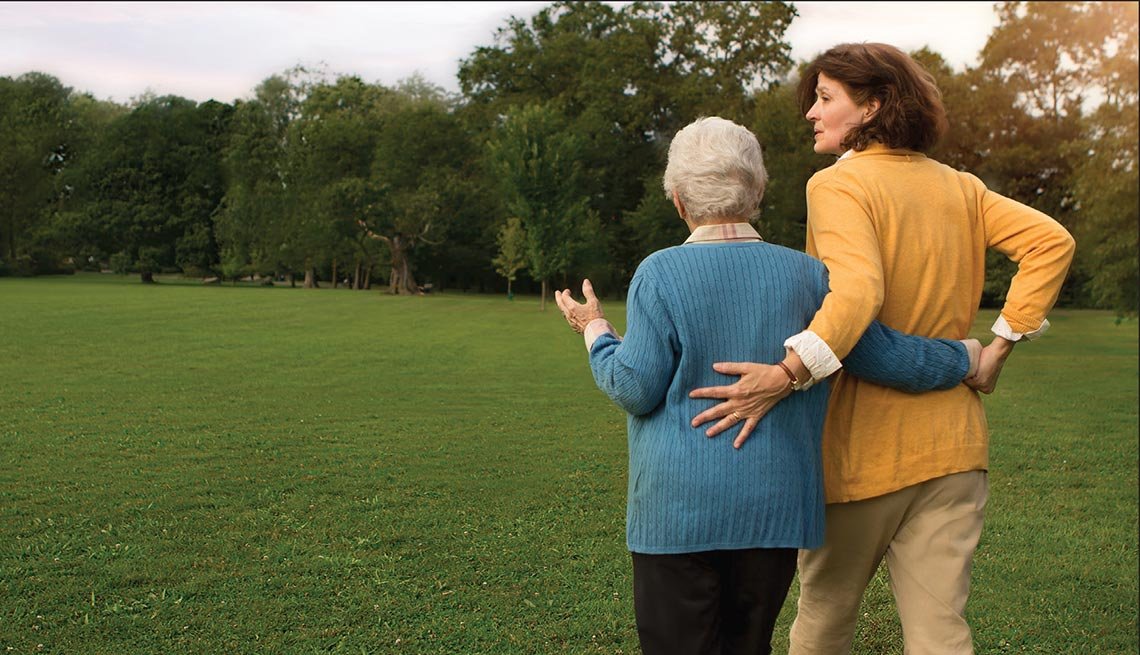The "oldest adult daughter" keeps our care economy afloat - and her training starts young
by Adam Felts
At the AgeLab, we often talk about the importance of the “oldest adult daughter.” When something happens in the family, the oldest adult daughter is willing to step up and take charge of the situation. She is the one who is most likely to become the caregiver in the event one of her parents needs help. That makes her a uniquely influential figure within a household. “The future is female,” as we like to say, because the care economy is primarily managed by females—75 percent of unpaid caregivers are women.
What leads to the oldest adult daughter being the person most likely to step into the caregiving role? That’s a big question that I don’t intend to answer here. Instead, I’ll just describe some findings from an AgeLab interview study on caregivers and self-care that point us in an interesting direction.
We asked these caregivers—a mostly split group of men and women—whether they conceptualized their self-care as a luxury or a priority. Interestingly, several of the women we interviewed—and, as it happened, none of the men—went all the way back to childhood to explain how they answered this question.
When they were children, these female respondents said, they learned from their mothers about what was important in life. And what their mothers taught them was to sacrifice themselves to take care of other people.
As one respondent said:
“I honestly see [self-care] more as a luxury because of how I was raised. My mother was raised very old-fashioned, was the caregiver, was the carer of the house, grew up in another country, [was] just trying to survive, so she was always just caring, caring, caring for everybody. I think I picked up a lot of those traits. So I'm still uncomfortable, even though I know [self-care] should be a priority, because I will put [my care recipient] first before myself.”
At a very young age, these women had an ethic delivered unto them. This phenomenon falls under a similar sociological theme as, say, our cultural tendency to give little girls dolls to play with so they begin to conceptualize themselves as mothers. But those sorts of influences on behavior tend to be implicit—not the sort of thing that often comes up in a research interview. Conversely here, without any prompting from us at all, these women reached back to their upbringing to explain their self-sacrificial ethic.
We saw two explanatory components of this self-sacrificial ethic in our interviews: a deontological component and a teleological component. The deontological component appeared in statements about what these female caregivers felt that they were obligated to do—in other words, what they thought were their duties as daughters, wives, loved ones, women, and human beings.
The teleological component appeared in statements about the best sort of life these participants believed was available to them—in other words, what best suited their natures:
“I think I was brought up to be a people pleaser and caretaker for others, and it was always my role … I enjoy and get some meaning in my life from helping others. I guess I don't know exactly where it all comes from, but I think it's been a part of me for a long time.”
For this respondent, the caregiver role was not just an obligation that she took on, but a part of her being, something that was implanted in her from a young age and gave her enjoyment and meaning.
One of our female respondents received similar messages from her mother when she was young—but she resisted them:
“I kind of hear my mother's voice – my mother, having been a very conservative midwestern Lutheran, saying … ‘you'll see that this is the most important thing in life that you've got, that work is not important, that you've got to be a mother and care for other people, that's the most important thing.’ And I never bought it. And I still don't really buy it.”
Despite not ‘buying’ her mother’s ethic of sacrifice, this respondent still felt pressure and guilt to take on the caregiving role even though she did not feel suited for it. She pointed directly to her social role as a woman to explain her guilty feelings:
“You know, if I were a man, would I feel less guilty about doing my [career] work? If I needed money, would I feel less guilty about doing my work? It feels like the work [career] is for my own satisfaction, and therefore I feel more guilty.”
Even when these roles and norms are made explicit to us, and even when we apparently reject them, they still have power over us.
Without the sacrifices of the ‘oldest adult daughter,’ our society, frankly, probably wouldn’t function. Her labor of care represents about $470 billion of output every year, and there is no ready alternative at hand for us to replace her. But more important than their raw capacity for labor is the willingness of these women to play the role of caregiver, to see it not only as something that they are obligated to do, but as something worth doing and worth sacrificing for. The ethic of care appears to be gendered—which may be both an unjust burden unto women and a failure of vision unto men.

